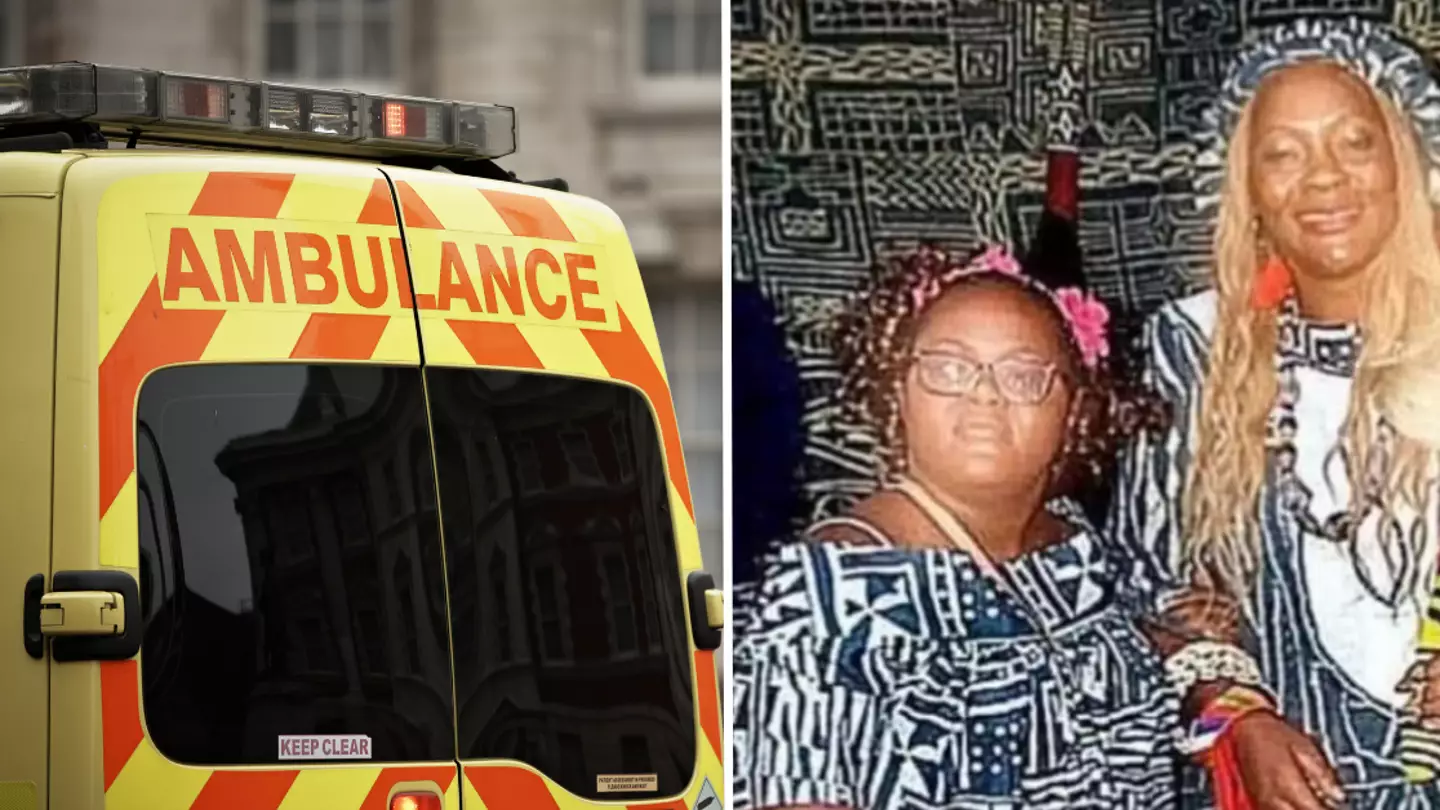
An inquest into the tragic deaths of a British mother and her 18-year-old daughter, who were found dead inside their home last year, has gripped the country this week.
For those unfamiliar with the case, the bodies of Alphonsine Djiako Leuga, 47, and her daughter Loraine Choulla were discovered by police in the town of Radford, UK, on 21 May 2024 - almost four months after they had called 999 for an ambulance that never arrived.
In February 2022, Alphonsine, who was battling sickle cell anaemia prior to her death, had tried to call 999 for her daughter, telling the dispatcher she needed help.
Loraine had a series of severe learning difficulties, including Down's Syndrome, so she was 'entirely dependent' on her mother, according to reports.
Advert
Alphonsine had told the dispatcher on the phone that, due to her anaemia, she was cold and unable to move, as per The Guardian.
The BBC reported that she told the handler: “Would you send an ambulance? Please come, please.”

The ambulance Alphonsine Djiako Leuga called never arrived
In court, Susan Jevons, the head of patient safety at the East Midlands Ambulance Service, claimed that the call handler had attempted to call Alphonsine back after the call ended.
However, she says ultimately, 'the ambulance didn’t go to the address because the emergency medical adviser, thinking it was an abandoned call, closed the call down’.
At the court hearing this week, pathologist Dr Stuart Hamilton said that the two women could have been dead for 'weeks to months' before being discovered.
He didn’t rule out that Alphonsine had died the day she called for an ambulance, and the Nottingham & Nottinghamshire Coroner’s Service previously confirmed that the mother had died of 'pneumonia of uncertain cause'. Meanwhile, the cause of Loraine's death remains 'unascertained'.
Tyla has previously contacted the East Midlands Ambulance Service for comment.
As details continue to emerge surrounding the tragedy, people are being reminded of what they should do if they find themselves in a situation where they’ve called an ambulance that doesn't end up arriving.
Fletchers Solicitors have outlined the three options you could take if you’ve called 999 for an ambulance in the UK and it hasn’t arrived within a reasonable time.

What to do if an ambulance doesn't turn up
The law firm advises that in life-threatening situations or emergencies, you should call 999 again to check the status of your ambulance and make sure it is being treated as a priority.
If it’s not a medical emergency, you can consider calling NHS 111 for advice, or, if it’s safe to do so, you can travel to an urgent care centre.
If you do this though, make sure you tell the call handler or phone 999 back to inform them you no longer need the ambulance.
The experts also outline that if you experience significant delays or the ambulance does not arrive at all, you should think about preparing a potential ambulance delay compensation claim.
To do so, you will need to make sure you note down the time of your original call, the expected response category if known, and finally when the ambulance actually arrived (if it did).
You should also record any important details, such as any deterioration in the patient’s condition during the wait, collect witness details, and take any photos that can serve as evidence.
If you had any further interactions with emergency services, the lawyers advise that you keep a record of those too and seek medical attention as soon as possible, even if you no longer need an ambulance - this creates a record that can help to support your claim.